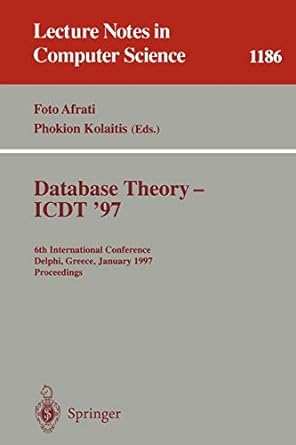Answered step by step
Verified Expert Solution
Question
1 Approved Answer
can you help me with the code where my pc count in not working properly. when in pass this text as in input A
can you help me with the code where my pc count in not working properly. when in pass this text as in input AAAAAAAAAAAAAABBACCADDAEEAFF the output for pc should be but it was and here is my code:
#include
#include
#define MEMORYSIZE
#define REGISTERCOUNT
typedef struct
unsigned short memoryMEMORYSIZE;
unsigned short registersREGISTERCOUNT;
unsigned short pc;
unsigned short statusflags;
CPU;
void initializecpuCPU cpu
memsetcpumemory, sizeofcpumemory;
memsetcpuregisters, sizeofcpuregisters;
cpupc ;
cpustatusflags ;
void processinputCPU cpu
unsigned short instruction;
int i ;
while scanfhx &instruction EOF
cpumemoryi instruction;
printf from process:X
instruction;
cpumemoryixDEAD; Termination instruction
void simulatecpuCPU cpu
while cpumemorycpupcxDEAD
unsigned short instruction cpumemorycpupc;
unsigned short opcode instruction ;
unsigned short operands instruction & xFFF;
switch opcode
case x: ADD
case x: SUB
case x: MUL
case x: DIV
case x: AND
case x: ORR
unsigned short roperands & xF;
unsigned short roperands & xF;
unsigned short r operands & xF;
cpuregistersropcode xcpuregistersr cpuregistersr :
opcode xcpuregistersr cpuregistersr :
opcode xcpuregistersr cpuregistersr :
opcode xcpuregistersr cpuregistersr :
opcode xcpuregistersr & cpuregistersr :
cpuregistersr cpuregistersr;
break;
case x: NOT
unsigned short roperands & xF;
unsigned short roperands & xF;
cpuregistersr ~cpuregistersr;
break;
case xA: MOV
unsigned short r operands & xF;
unsigned short constant operands & xFF;
cpuregistersr constant;
break;
case xB: LDR
unsigned short rdest operands & xF;
unsigned short raddr operands & xF;
cpuregistersrdest cpumemorycpuregistersraddr;
break;
case xC: STR
unsigned short rsrc operands & xF;
unsigned short raddr operands & xF;
cpumemorycpuregistersraddr cpuregistersrsrc;
break;
case xE: JMP
short offset operands & xFFF;
if offset & x
offset xF;
cpupc offset;
break;
case xF: JEQ
if cpustatusflags
short offset operands & xFFF;
if offset & x
offset xF;
cpupc offset;
break;
default:
printfInvalid opcode: X
opcode;
return;
void displayoutputCPU cpu
for int i ; i REGISTERCOUNT; i
printfregister d: xX
i cpuregistersi;
printfregister PC: xX
cpupc;
for int i ; i MEMORYSIZE; i
printfxX: i;
for int j ; j ; j
if i j MEMORYSIZE
printfX cpumemoryi j;
printf
;
int main
CPU cpu;
initializecpu&cpu;
processinput&cpu;
simulatecpu&cpu;
displayoutput&cpu;
return ;

Step by Step Solution
There are 3 Steps involved in it
Step: 1

Get Instant Access to Expert-Tailored Solutions
See step-by-step solutions with expert insights and AI powered tools for academic success
Step: 2

Step: 3

Ace Your Homework with AI
Get the answers you need in no time with our AI-driven, step-by-step assistance
Get Started


